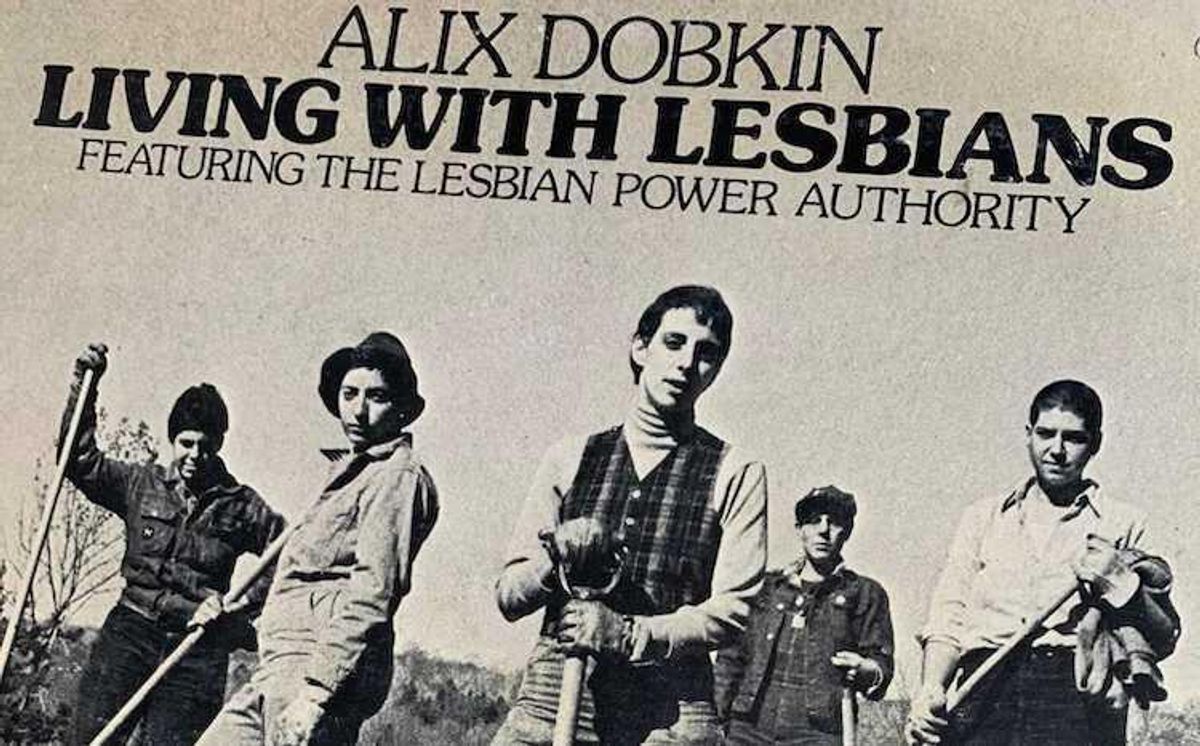Lesbian and women's music legend Alix Dobkin has died at age 80.
Dobkin died Wednesday "due to complications from a brain aneurysm and stroke," Chicago's Windy City Times reports.
Dobkin was a prominent singer, songwriter, and producer in the world of women's music. In 1973 she released Lavender Jane Loves Women, "the very first album by, for and about Lesbians in the history of the world," as Dobkin wrote on her website, with a band also called Lavender Jane. "From then until now, I have focused on the lives, concerns and perspectives of women who love women," she added.
Dobkin followed Lavender Jane with numerous other albums, including Living With Lesbians, XX Alix, and Yahoo Australia. She was renowned for her performances at lesbian coffeehouses and women's music festivals, usually for women-only audiences.
Dobkin grew up primarily in New York City and Philadelphia, with left-wing, politically active Jewish parents who were under FBI surveillance during the Cold War because of their ties to the Communist Party, as Dobkin was herself after joining the party. She was always "aware of a rich family tradition of leftist politics and resistance to oppression," Tina Gianoulis wrote in the GLBTQ Encyclopedia. Dobkin chronicled her early life in her 2009 memoir, My Red Blood: A Memoir of Growing Up Communist, Coming Onto the Greenwich Village Folk Scene, and Coming Out in the Feminist Movement.
In that Village scene, she encountered such artists as Bob Dylan, Ronnie Gilbert, Pete Seeger, Bernice Johnson, and more, and she became active in the Black civil rights movement, traveling to Mississippi to protest. "Dobkin was not a folkie Forrest Gump, but she was in the right place at the right time to be part of several of the last century's critical movements," Tracy Baim wrote in a Windy City Times review of My Red Blood.
She had an early marriage to a man, Sam Hood, who managed a Village folk club, and they had a daughter together, Adrian, then divorced in the early 1970s. After Dobkin came out as a lesbian, she became one of the major voices in the lesbian feminist movement. She was a member of many activist groups, including the steering committee of Old Lesbians Organizing for Change.
Dobkin expressed her opinions not only through song and activism but also through opinion columns for publications including Off Our Backs and Windy City Times (formerly Outlines). In some she voiced controversial views on transgender people, at one point describing trans men as being in "flight from womanhood" and objecting to trans women being in women-only spaces. However, her views evolved, and she was a strong advocate for the rights of all women.
"In the woman-loving universe we all envision, everyone would treat everyone else respectfully, none would be ridiculed (unless they deserved it) and woman-loving females of every variety would consider each other simply as another measure of womanhood," she wrote later. "Unfortunately we're not there yet, but until we do, I won't be held responsible for any bad conduct but my own."
Fans and associates are remembering her fondly. "It is important to remember that starting in the 1970s Lavender Jane used musical and lyrical machetes to cut through the forests of misogyny and pervasive anti-lesbian culture," musician, journalist, and Lavender Jane band member Toni Armstrong Jr. told Windy City Times. "Alix in particular was relentless in her insistence that we say, sing and celebrate the word lesbian. ... Few people can ever lay claim to having actually, tangibly changed the world. Thank you, Alix. Thank you."
Dobkin "will always be 'The Head Lesbian,' an honor well deserved, and bestowed with lesbian love, affection and gratitude," Kathy Munzer told the publication. Munzer was a producer at Chicago's Mountain Moving Coffeehouse, where Dobkin often performed.
Dobkin's survivors include her daughter, three grandchildren, a brother and sister, nieces, nephews, extended family members, former partners, and many friends. A memorial service is being planned for this summer.


















































































